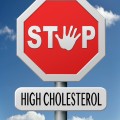Keeping Your Blood Pressure on Track for Heart Health
Reviewed by Robert Ehrman, MD and Fran Daniel, MPH
Keeping your blood pressure at a healthy level is important to help prevent heart attacks, strokes, and other heart problems. Guidelines just released by a group of health experts present new ways for patients to manage high blood pressure, as well as ways for healthcare providers to treat people with high blood pressure.
Blood pressure basics
Blood pressure is a relationship between two numbers: systolic and diastolic pressures. Systolic pressure is the top number, and it measures the pressure in the arteries when the heart beats. Diastolic pressure is the bottom number, and it measures the pressure in the arteries in between heartbeats. Up until now, the guidelines for normal blood pressure have been 120/80 mmHg (millimeters of mercury).
New blood pressure guidelines
The new guidelines for blood pressure address:
- What blood pressure goal is healthy for me?
- When do I need to take medicine or change my habits for high blood pressure?
- What medicine or changes are best if I have high blood pressure?
In addition, they note the following goals:
- People aged 60 or older with high blood pressure should aim for a blood pressure level of less than 150/90.
- People aged 30 to 59 should aim for a diastolic blood pressure (the bottom number) of less than 90. There is not enough information to set a goal for systolic blood pressure (the top number) for people in this age group.
- People less than 60 years of age should aim for a blood pressure level of less than 140/90.
When should blood pressure treatment be started?
The blood pressure level that is considered too high has not changed—it is still 140/90. The authors of the study found that medicines should be started for high blood pressure when it reaches 150/90. People who have blood pressure between 140/90 and 150/90 should use lifestyle changes (like eating less fatty foods, getting more exercise, or quitting smoking) to try to get their blood pressure lower.
What blood pressure treatments are best?
The new guidelines suggest that a healthy diet (lean meat, low-fat proteins, and plenty of fruits and vegetables), keeping weight under control, and getting more activity can help improve your blood pressure and reduce the need for blood pressure medicines.
If you do need to take blood pressure medicine, talk with your healthcare provider to find out what medicines will work best for you, and visit regularly to follow up.












